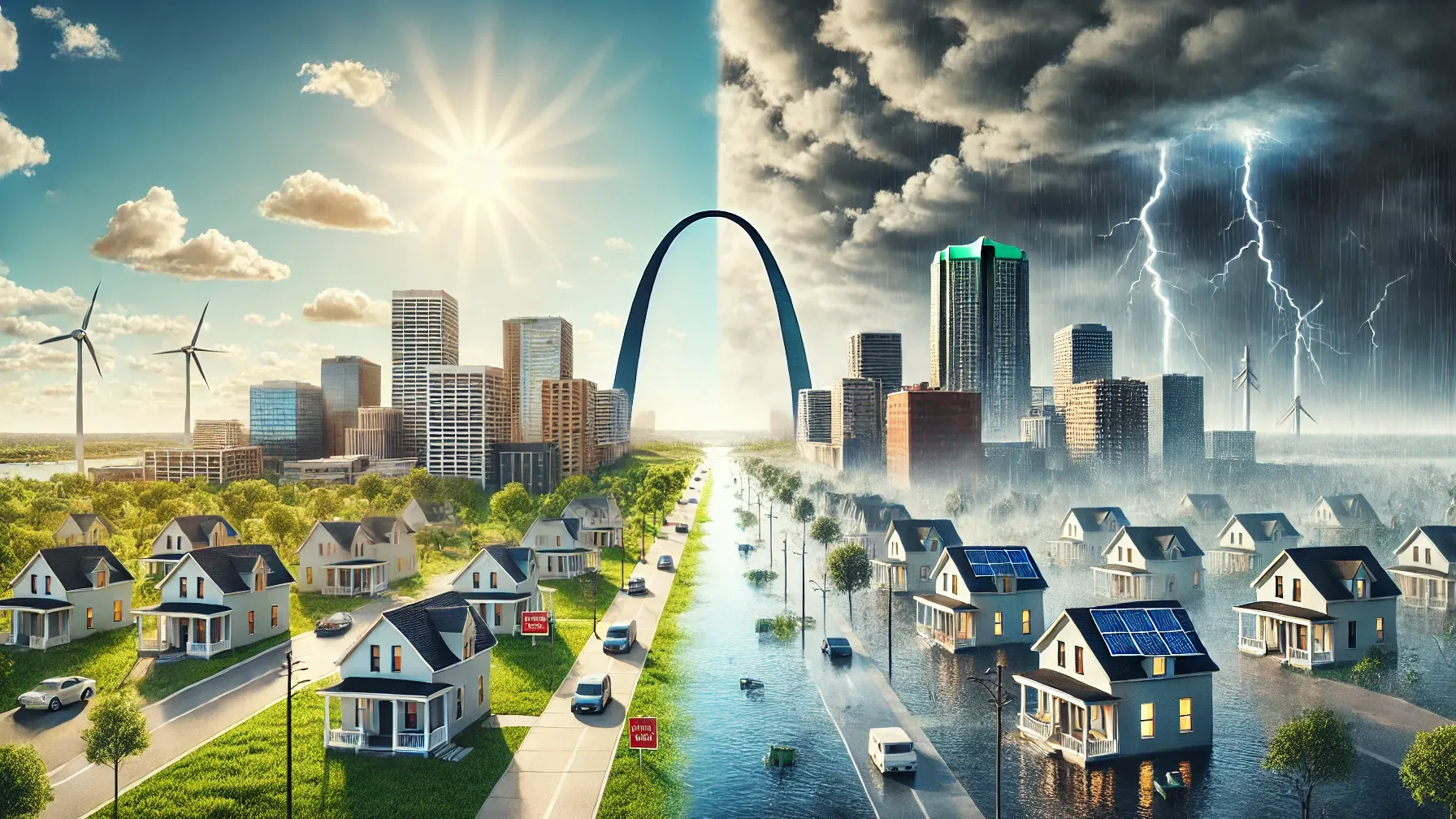St. Louis Real Estate: Climate Change Impact in 2024 Market
Oct 24, 2024
Written by David Dodge
Sudden weather has become increasingly an issue for both homeowners and investors in real estate over the past couple of years. In fact, according to the National Centers for Environmental Information, the U.S. saw a record 28 billion-dollar weather events last year alone. As climate change gets more and more dominating, its effects are changing the way real estate functions in unexpected ways. It has been a scorcher of a year for real estate-from skyrocketing insurance costs to shifting property values.
St. Louis Weather and the Changing Market
Take St. Louis for example. This city had to fight a constant series of meteorological extremes comprising swelteringly humid summers and irregular storm systems. Still, recent trends manifest the increasing frequency and magnitude of heavy storms together with variable weather conditions.
According to a report by the Union of Concerned Scientists, due to the changing climate, St. Louis could see an increased flooding over the course of the next decade. That elevated risk will probably impact insurance rates and maybe even what types of homes are built. More and more, would-be homeowners have a vested interest in understanding the ways that climate risks shape local economies, such as St. Louis.
The Real Estate "Climate Bubble
Experts say the U.S. housing market is at risk of a "climate bubble." Extreme weather risks are ballooning concerns about overvaluation in flood zones, areas susceptible to wildfires, and hurricane paths. The numbers are eye-popping: A 2023 report in Nature Climate Change estimated that properties in flood-risk areas alone are overvalued by as much as $237 billion.
A companion study by Milliman, an actuarial services company, puts the risk from the climate bubble even higher, at more than $520 billion overvaluation in housing. For many homeowners, the implication is that a brutal decrease in property values might not be far off, especially for areas where insurance is either too expensive or has stopped being offered altogether. Florida, California, and Louisiana already face this predicament as the first climate-driven insurance deserts start to appear.
Will Consumer Behaviour Ever Balance?
Despite this risk, individuals still move toward areas where the risk increases. In fact, one analysis by Redfin looked at American movement between 2021 and 2022 to areas most vulnerable to climate-related hazards such as wildfires and hurricanes. This would seem counterintuitive; however, these areas usually stay more affordable and desirable despite the blatant danger. But this could be a temporary trend. For example, in St. Louis, the expected rise in flooding will, over time, make some neighborhoods less desirable, as insurance premiums keep rising. It's a delicate balance of affordability versus risk, and as the weather events worsen further, consumer preference could start trending toward the safety of a locale.
How Builders Are Coping
To meet these challenges, developers and builders are building homes to be more resilient. In several cities, particularly those containing areas prone to easy flooding, new homes are being built on higher foundations with features that are resilient against floods. This reduces insurance coverage costs for both the builder and homeowner. In Boston, one waterfront luxury apartment complex reduced its risk of flood loss by 90 percent through weather-conscious designs like flood gates and coastal vegetation.
Making homes that could withstand flood-related and wind-related damages could be important points of real estate discussions in this St. Louis City, which is increasingly facing variable weather patterns.
Conclusion
The Real Estate Forecast As climatic conditions progress, it becomes imperative for the real estate sector to adjust accordingly. In areas such as St. Louis, where meteorological patterns are evolving, maintaining awareness of associated risks and possible fluctuations in the market is crucial. Understanding this-in the near future-will be important for owners, investors, and builders alike. Resources from the National Centers for Environmental Information, along with increasingly more climate risk appraisals, will allow individuals to make incredibly informed decisions about where to invest or reside in the future.






